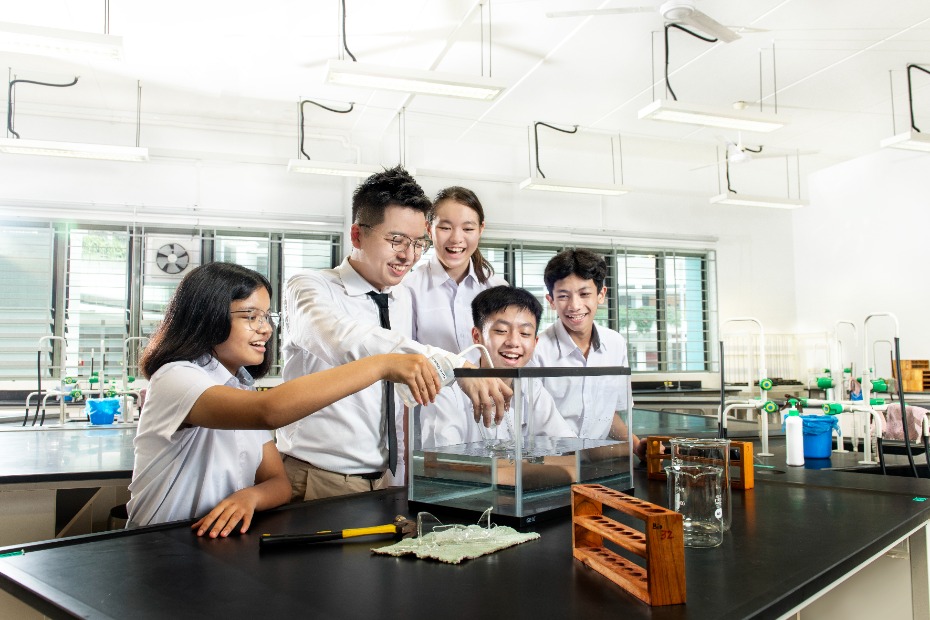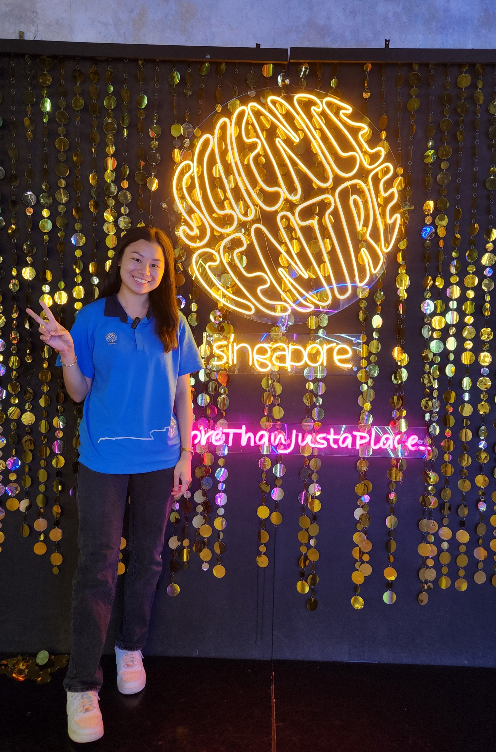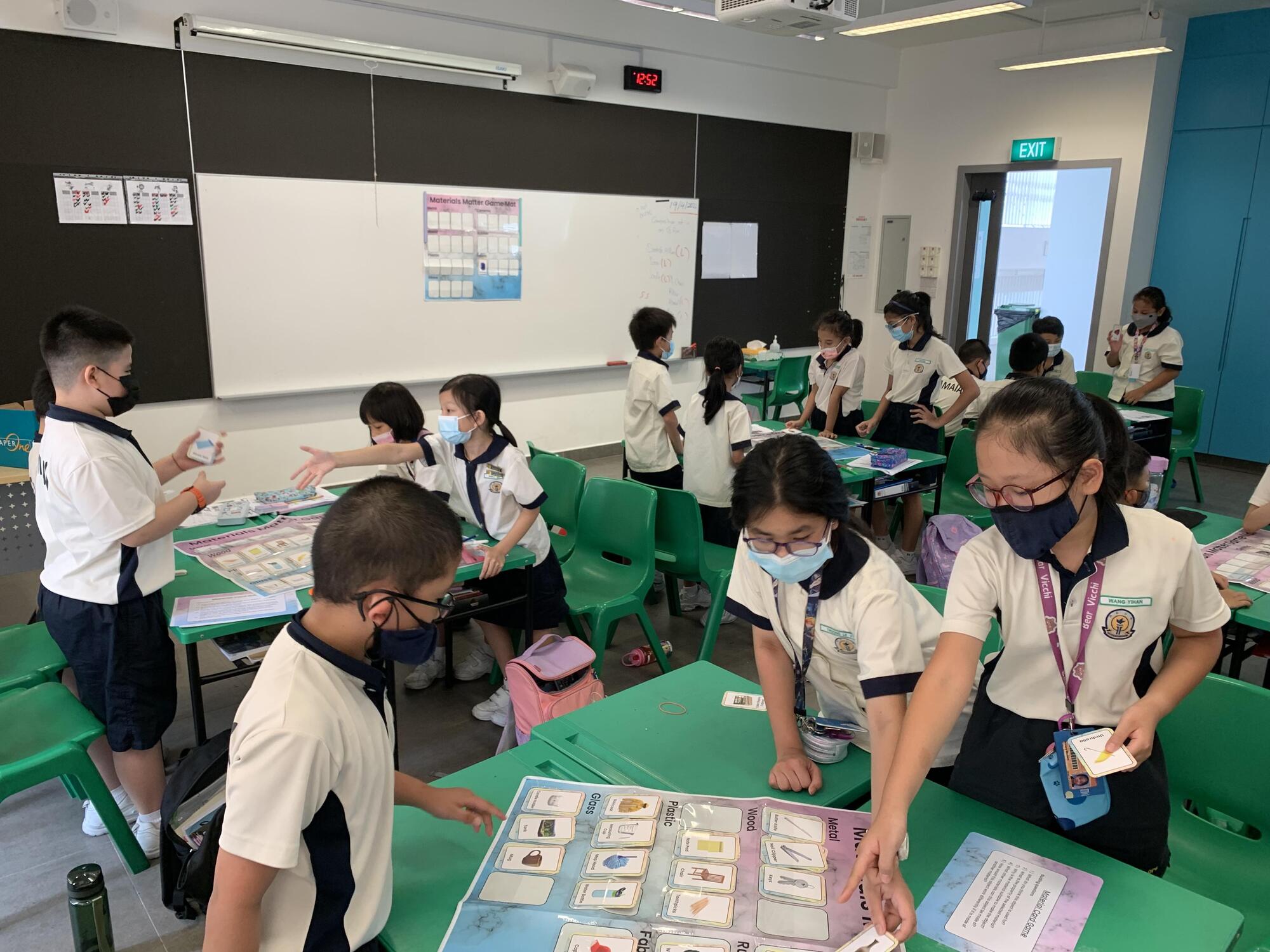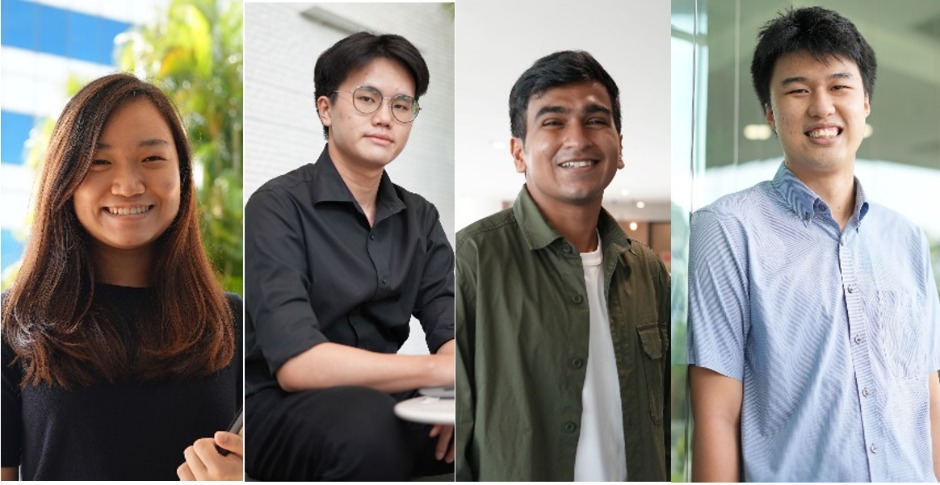Working Like Real Scientists
04 Aug 2011

Mdm Nursayidah Abdul Rahim wears her “secret weapon” lab coat to encourage pupils to approach experiments like scientists.
“Good morning, young scientists! Do you know what my secret weapon is today?” Having gripped the attention of her Primary 4 class at Coral Primary School, Mdm Nursayidah Abdul Rahim whipped up a white laboratory coat and declared amidst much laughter, “It’s time for investigation!”
The pupils buzzed with excited speculation before Mdm Nursayidah continued with a practical lesson on the transparency of materials. But instead of simply teaching the pupils what and why, this IM@Coral science lesson provided them with the tools to formulate their own experiments and learn how Science works by charting their own observations and conclusions.
Seeing the light
Short for ‘Inquiring Minds at Coral Primary School’, IM@Coral is a package of Science lessons introduced in 2010 to teach pupils the methods of scientific inquiry. This is accomplished when teacher and pupils work together to deduce the principles behind the physical world.

Instead of workbooks, pupils record their observations and findings in specially customised worksheets.
Mdm Nursayidah began by taking her class through the various stages of scientific inquiry. “Who wants to try coming up with a hypothesis?” she asked. Immediately, almost all the pupils raised their hands up and vied for a shot. Evidently used to such enthusiasm, Mdm Nursayidah managed the brouhaha so that everybody had a chance to join the discussion. As each pupil offered his or her suggestion, she submitted the idea to the class and asked them to indicate what they thought of it with a brisk, “Thumbs up or thumbs down?”
The pupils are involved in every stage of the experiment, from selecting the materials they want to test to deciding on the focus of their research. When Mdm Nursayidah finally gives them the green light to proceed with their experiments, the pupils literally leap from their chairs to the workbenches. There’s a real sense of working in a proper science laboratory as the instruments and monitors light up and click to the command of young users who meticulously count and check the readings to obtain data that would support or disprove their hypotheses.

Pupils measure the amount of light passing through different materials using a light sensor and a mixer.
There are no answers provided in this exercise, so many pupils were surprised to discover during their experiments that their clear plastic material did not let light go through completely. “Is there something wrong with our sensor?” one worried group of pupils asked each other. They conducted the same test on other materials; the light sensor appeared to be working fine, so they jotted down their unexpected findings for later discussion.
“This is why we have to do things like a real scientist,” explained Mdm Nursayidah at the end of the session. Revealing the reason for the unexpected result, she added, “To the naked eye, many of us would think that clear plastic is totally transparent. But when we use proper scientific tools like the light sensor, we find out that this is not the case.”
Making sense of science
Giving her take on the effectiveness of the IM@Coral approach to teaching science, Ms Jean Tham, a research activist at Coral Primary School, said, “There was a positive effect on the level of engagement and a slight positive effect on the achievement scores.” Ms Tham, who has been evaluating the IM@Coral method, added that the programme’s results could be traced to the way teachers develop three different curricula to cater to the different learning aptitudes of various classes.

Science teachers Mdm Nursayidah and Ms Jean Tham are delighted that the IM@Coral package has made science a fun subject for Pri 4 pupils such as Quirsten Russel and Ysabelle Noriel.
For Ysabelle Noriel and Quirsten Russel, the chance to do real experiments in class has made science their favourite subject. Having enjoyed IM@Coral sessions for a few weeks, Quirsten shared that she had discovered the benefits of approaching things like a scientist. “At first, words like ‘hypothesis’ and ‘variable’ seemed hard,’ but if you sit down and really think about what they mean, they actually make sense and help with the experiments,” said the Pri 4 pupil. Her classmate Ysabelle quipped. “Light is so interesting and I have found out so much information about it!
Such responses were certainly music to the ears of Ms Nursayidah and Ms Tham, and the teachers are planning to expand the IM@Coral package to more science topics in the coming year. “The pupils may not be aware of it, but so much more thinking is involved with this inquiry-based learning approach to science,” explained Ms Tham. “When they are more hands-on, when they have to search for the information on their own, the knowledge they acquire becomes much more meaningful to them.”


.jpg)


